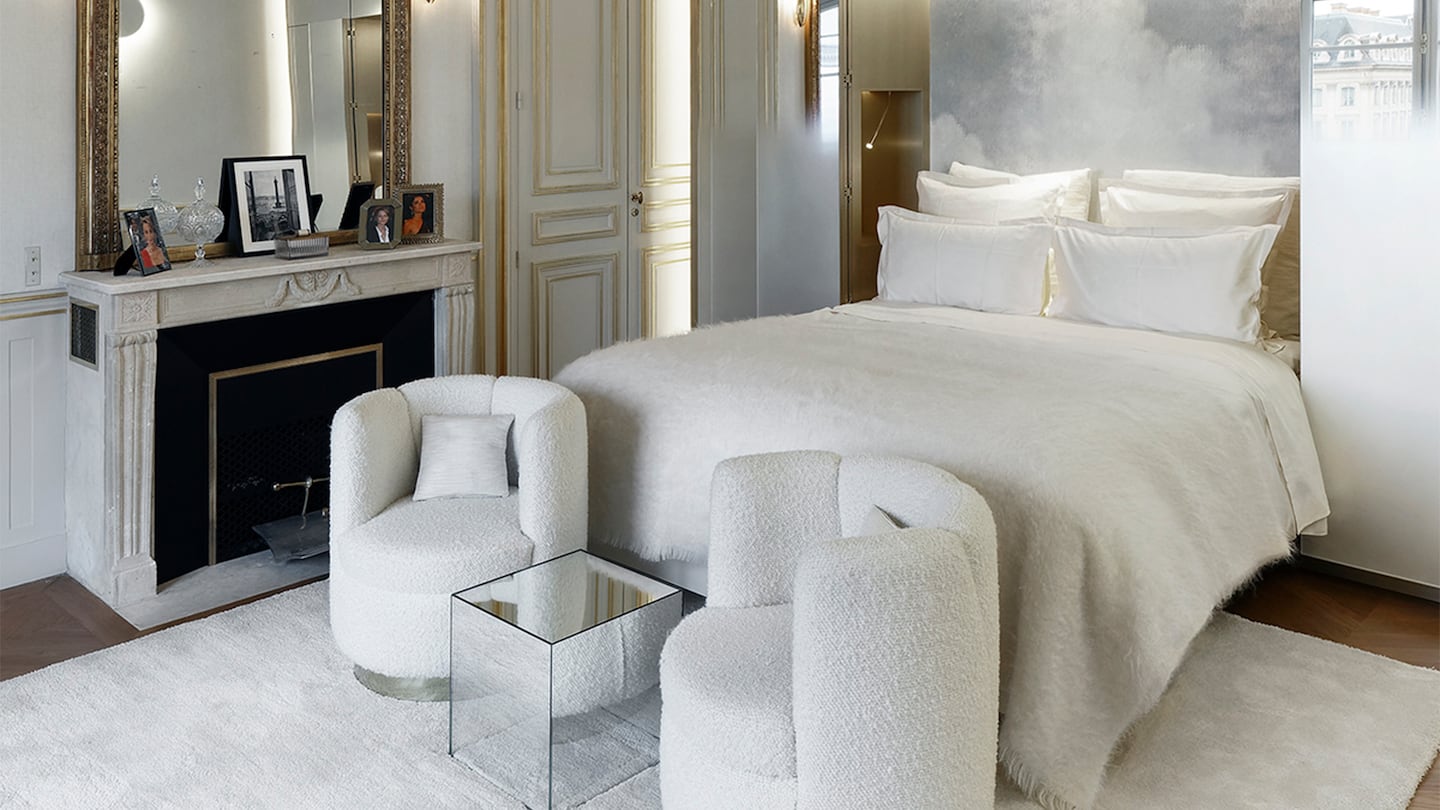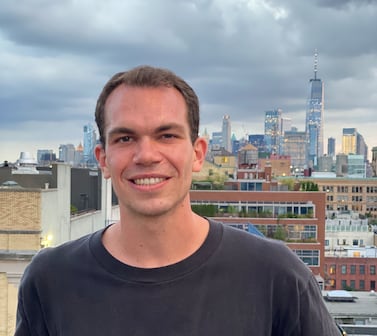
The Business of Fashion
Agenda-setting intelligence, analysis and advice for the global fashion community.

Agenda-setting intelligence, analysis and advice for the global fashion community.

If recent announcements from airlines are anything to go by, the global travel and tourism sector is set for a bumper 2023. That’s good news for the luxury brands whose brand marketers are zeroing in the $4.3 trillion lifestyle industry.
While most fashion companies’ brand extensions into the lifestyle industry generally pivot around connecting with customers at home — something that was particularly important during the pandemic — there are now renewed opportunities to be part of customers’ travel experiences at hotels and resorts.
The authors of BoF Insights’ latest report, The Lifestyle Era: Luxury’s Opportunity in Home and Hospitality, unpack how hotels are becoming a key part of many luxury brand playbooks.
In tandem with the travel industry gaining momentum, sales generated through branded hotels this year are forecast to reach $600 billion globally, up from $494 billion in 2022, according to Euromonitor International.
ADVERTISEMENT
But for many brands, revenue generation isn’t the prime motivator for their hotel ventures. Consumer research from BoF Insights underscores the boost to brand equity extensions can provide alongside cross-selling opportunities. For affluent shoppers surveyed by BoF Insights, a branded-hotel visit can have an enduring impact, often influencing future purchase decisions. Nearly 80 percent of respondents say that after staying at a hotel or residence associated with a brand, they are likely to purchase the brand’s core fashion or home products.
For some brands, there’s another benefit: providing an additional touchpoint for their top-tier clients beyond shop floors that aims to be highly personalised and memorable. At Boucheron’s private apartment at Place Vendôme in Paris, exclusive hospitality is provided to only a select few guests every year. The guests receive a white-glove experience that goes beyond what is experienced at the luxury jeweller’s shop floor, with concierge and butler services to organise parties and events at the exclusive location.
As Hélène Poutin-Duquesme, Boucheron’s chief executive, sees it: The apartment “is about arousing emotion and experiencing something that will live forever. … [It] is spectacular but not intimidating. You understand that you are in a private French apartment, not in any brand showroom — you are at home.”
While few brands have access to the real estate to offer ultra-exclusive, VIP extensions like Boucheron’s, there are other ways hotels can provide brands with an exclusive client touchpoint. And the vast majority of these brand extensions are built upon licensing agreements and joint ventures with hospitality or property partners.
In some cases, this enables brands to apply house codes and aesthetics when decorating suites and other interiors with hotel partners, placing branded homeware products in rooms to create an association with their furniture, linen and other textiles, or even room fragrances and visitors’ travel experiences. Gucci, for example, entered into an agreement with Fairmont Hotel and Resorts’ Savoy Hotel in London to provide guests visiting London with an exclusive experience of the city. This included designing a suite that showcases items from its furnishing and decorative homeware that underscores urban luxury with views of the River Thames and skyline, alongside concierge and other special services for guests.
Other brands go a step further, opening fully branded hotels under their own names. One brand that has been an early adopter of this approach is Bulgari. Having entered into a joint venture with Ritz-Carlton Hotel Company in the early 2000s, the luxury jeweller opened its first hotel in 2004 in Milan, followed by another near London’s Hyde Park in 2012. Today, it has eight hotels, with a string of openings planned over the next few years in Rome, Miami Beach and Los Angeles, as well as a resort in the Maldives.
Some brands are now evolving the physical experiences of hotels and spearheading entire residential developments, generally in exclusive mixed-used spaces with shops, restaurants and other opportunities to showcase a brand, such as spas. Last year, Dolce & Gabbana announced a real estate project with two residential developments in Miami and one in Marbella, Spain, through respective local partners and Sierra Blanca Estates, while also teaming up with Saudi property developer Dar Global to create a branded hotel in the Maldives. The announcement followed the creation in 2022 of a new beauty division and the launch of its “Casa” homeware collection.
A common theme cutting across successful hotel ventures is quality — starting with the partnerships and agreements brands enter. Like with any tie-up in the industry, luxury players face reputational and other risks in entering into deals that place their brands front and centre. Well-chosen partners help ensure the hotel experiences associated with the brand are synonymous with the essence of the brand’s core offering.
ADVERTISEMENT
Along with industry expertise, execution becomes more complex as the size of investment increases. Clear alignment around which areas of expertise are best kept in-house also enable brands to maintain control of a venture. For instance, the Ritz Carlton, Bulgari’s operating partner for its hotels and resorts, facilitates staff training while Bulgari oversees other operations, including sales, marketing and public relations.
Ultimately, successful hotel extensions capture the brand in a way that makes sense to customers. “It’s really about making sure you’re relevant to guests of that hotel, and then, how does that fashion brand translate into a hotel experience?” said Jenni Benzaquen, managing director of Design Hotels and senior vice president of EMEA brand portfolio at Marriott International, which is the parent of Ritz-Carlton. The overarching aim, she added, is for brands to “become part of the memory of that trip, so that when that guest goes home, you are top of mind in terms of a purchasing decision.”
For access to all of the data and insights to inform your business strategy for home and hospitality, purchase an Executive membership.
BoF Insights is The Business of Fashion’s data and advisory team, partnering with leading fashion and beauty clients to help them grow their brands and businesses. Get in touch at insights@businessoffashion.com to understand how BoF Insights support your company’s growth for the long term.
Pellicano group CEO and creative director Marie-Louise Sciò has turned her family’s hospitality business into a name with international caché, partnering with the likes of Birkenstock and Matchesfashion. Now, the group is an attractive acquisition target.
CEO Pietro Beccari reveals how a sprawling revamp of Dior’s historic Avenue Montaigne hub fits into wider plans for the fast-growing brand. ‘It’s not a store, it’s a universe,’ he said.
There are stores, there are flagships, and then there are mega projects like Dior’s Avenue Montaigne, Chanel’s Rue Cambon and Gucci’s Garden that go a step further in driving revenue and creating a lasting impression with shoppers. On Friday after a four-year renovation, Tiffany will make its case to be added to that list.
To celebrate the 10th anniversary of Armani Hotels in Dubai and Milan, Giorgio Armani hosted an event in Dubai Tuesday evening that included a runway show featuring the brand’s men’s and women’s Spring/Summer 2022 collections and a selection of Armani Privé Haute Couture looks from the Fall/Winter 2021/22 Shine collection.

Benjamin Schneider is the Senior Research Lead at the Business of Fashion (BoF). He is based in New York City as part of BoF’s Insights team, which arms fashion and luxury executives with proprietary business intelligence.

Rawan Maki is Associate Director of Research and Analysis at the Business of Fashion (BoF). She is based in London and is part of BoF’s Insights team, which arms fashion and luxury executives with proprietary business intelligence.
The designer — whose bright, arty clothes earned him a place in the 2021 LVMH Prize Finals, and a guest designer post for Louis Vuitton — curated a set at the Netflix Is a Joke Festival this weekend, the latest example of his creative approach to building brand awareness.
Practitioners of this historically behind-the-scenes profession are building powerful followings, riding a wave of interest in how the fashion sausage is made. But even the highest-profile PRs caution that the client still has to comes first.
Join us for a BoF Professional Masterclass that explores the topic in our latest Case Study, “How to Create Cultural Moments on Any Budget.”
When done effectively, a cultural partnership can rightfully earn its own place in the zeitgeist. But it’s not so easy as just hiring a celebrity to star in an ad campaign; brands must choose a partner that makes sense, find the format that fits best and amplify that message to consumers.